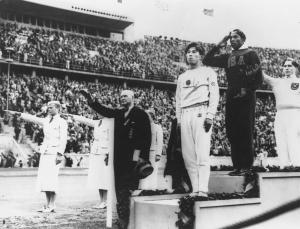On August 30, 2021, Afghanistan was fully occupied by the Taliban after the Biden administration completely withdrew troops. People gathered at Kabul International Airport in the hope of escaping from the Taliban's rule depicts the current state of Afghanistan. The Taliban's incomprehensible way of governing is being criticized around the world. Why did the U.S. military decided to withdraw from Afghanistan? How did the Taliban suddenly become so powerful? Why couldn't the Afghan government stop the Taliban? Let’s have a look at Afghanistan from various angles to find out what’s going on.
A Brief History of Afghanistan
Afghanistan is an inland country with less than 10% of its land being mountainous. The Hindu Kush Mountains, a mountain range with peaks that have an average altitude of 4,500m, has had a significant influence on the country. It has been a difficult place to conquer because the country is full of extreme mountains and cliffs. Nevertheless, people have continued to live here because this was the center of East-West exchanges and trade between India and China. Historian Arnold Joseph Toynbee picked Aleppo in Syria and Bagram in Afghanistan as the two regions with the most frequent traffic in ancient times. Because it was geographically important, Afghanistan was influenced by various cultures. In ancient times, it was a Persian territory and became a route to invade India for Alexander the Great’s conquest after conquering Persia. Gandara art, the art form that combines Greek and Buddhist styles, was born in this region. In the 7th century, the region was under Islam's influence. Later, the Durrani dynasty of Afghan descent, which is the background of modern Afghanistan, was established. Britain occupied this place to keep the Russian Empire from entering the Indian Ocean. To weaken the Pashtuns, the main tribe of the Durrani dynasty, the border called the "Durand Line" was drawn by the British. After World War I, Afghanistan became independent in 1919. As the Cold War began, all the neighboring countries came under the Soviet Union. To prevent the establishment of an Islamic regime in Afghanistan, the Soviet Union supported a coup in 1978, and started a war in Afghanistan but retreated after 10 years due to tough terrain and U.S. support for the Pashtun, an Islamic regime. War broke out between warlords, and the Taliban regime, with the backing of the Pashtun, took power in 1996.
Peoples of Central Asia tend to have tight ethnic and tribal bonds. For Afghanistan, it is seen in the national anthem, which mentions the names of the 14 tribes in the country. All these tribes are different in race and language. So, before the advent of the 18th-century dynasty, they were more like different countries. Among them, the tribe with the most power is the Pashtun tribe. As the Durrani Kingdom, of which the Pashtun tribe was the leading force, ruled from the 18th century to the 1978 coup by the communist regime, the Pashtun people consider Afghanistan as their own. Currently, they account for 43% of Afghanistan's population. There are more Pashtun tribes in Pakistan than in Afghanistan due to the "Durand Line." After the 1978 coup, the communist party took over the power from the Pashtun tribe. The group that filled this sense of deprivation and represented the tribal identity was the fundamentalist Islamic group the Taliban. Conflicts between tribal societies and the Pashtuns later became a big problem as the United States entered Afghanistan.
Why did the U.S occupy and withdraw its troops from Afghanistan?
After the September 11 terrorist attacks by Islamic terrorists in Al-Qaeda, the United States declared a "war on terrorism." At that time, Osama bin Laden, the head of Al-Qaeda, was protected by Afghanistan's Taliban regime. The George Bush administration asked the Taliban to hand over bin Laden, but the Taliban refused. Then, the United States declared war on the Taliban along with the Northern Alliance, a force in Afghanistan against the Taliban, and conducted a large-scale air strike in October 2001. After two months of war, they declared victory after occupying the most of Afghanistan. However, they failed to completely wipe out the remaining forces. It was because this was a retaliatory war due for the September
11 terrorist attacks, so it was hastily prepared. Moreover, the U.S.-Iraq war broke out in 2003. Al-Qaida continued to carry out terrorism, and the war was prolonged as the Taliban fought a guerrilla war with the U.S. In the end, not paying attention to the remnants of the Taliban resulted in the war going on for more than 20 years.
The U.S. military tried to use Afghanistan by stationing U.S. troops there and establishing a pro-U.S. central government, but the establishment of a central government wasn’t the end. It has been only 300 years since a unified state was established. Therefore, conflicts between tribes remained, making the government weak. Afghanistan was a tribal-centered society. The Western-style democracy that the United States tried to establish was an unfamiliar way of forming a government for Afghanistan. As the country had gone through first a monarchy, then the communist regime, for the people of Afghanistan democracy was a shocking concept. People could not accept it. Therefore, the Afghan government, established by the U.S., was in jeopardy because it was not supported by the entire country.
To make matters worse, the U.S. poured the astronomical amount of $2.26 trillion since 2001 to establish itself in the country, but the Afghan government was corrupt enough to rank 165th in the 2020 Corruption Awareness Index. Even before the withdrawal of the U.S. military in 2021, there were voices calling for withdrawal from Afghanistan in the U.S. The current U.S. President Joe Biden, who served as vice president during the Obama administration, consistently insisted on withdrawal from Afghanistan. Maintaining the central government in Afghanistan and the enormous cost of U.S. military presence have led the Trump administration to sign the "Doha Agreement" with the Taliban to reduce the presence of U.S. troops in Afghanistan in 2020, and the Biden administration would withdraw the troops completely.
How did the Taliban become so powerful in Afghanistan?
Through the guerrilla battle, the Taliban expanded its power mainly in rural areas where the central government could not reach. Due to Afghanistan’s tribal-centered society, people put more importance on their own tribe than on protecting the state. The Taliban took advantage of this. The Taliban made sure the various tribes were at war with each other by encouraging internal conflict among them. This made the Taliban more influential than the central government in the countryside. As a result, when the Taliban offensive was launched later, many Afghan troops surrendered without fighting because they thought it would be difficult to receive support from the central government.
The Pashtuns, the Taliban’s main tribe, also had great power in Pakistan. The source of Taliban training equipment and funds comes from Pakistan. One of the reasons for the modernization of the Taliban army is the military supplies and equipment left by the U.S. military during the Soviet-Afghanistan War. In addition, by raising opium in Afghanistan, the Taliban had a clear means of obtaining war funds. In fact, it is said that there are many farmers who grow opium in the area where the Taliban are in power. According to a report published in June by the United Nations Office for Drug Crimes (UNODC), 83% of opium illegally distributed around the world is supplied from Afghanistan. In 2019, Afghanistan earned $1.2 billion to $2.1 billion from opium production, accounting for up to 11% of its gross domestic product (GDP). The Taliban's ban on poppy cultivation seems to be an attempt to dispel international concerns that the drug industry could fall out of control after the Taliban's control of Afghanistan. However, it is questionable whether this is being implemented properly as financial transactions with Afghanistan have been suspended and 42.9% of GDP before the Taliban took power was from the aid of the international community.
Afghanistan under the Taliban rule
Over the past two decades, with Western support, the people of Afghanistan enjoyed freedom in everyday life, including employment, in urban areas. After the Taliban were removed from power in 2001, the school enrollment and illiteracy rates in Afghanistan improved significantly, especially concerning girls and adult women. According to a recent UNESCO report, the number of girls in elementary school in Afghanistan has increased from nearly 0 to 2.5 million in the 17 years since the previous Taliban reign. The report also revealed that women's literacy nearly doubled to 30% in 10 years. However, as the Taliban re-dominated Afghanistan, they declared Afghanistan would be ruled with Sharia Law, an Islamic law derived from the Quran. Nobel Peace Prize winner Malala Yousafzai, who was shot by the Taliban at the age of 15 for claiming the right to educate girls, warned that the Taliban's interpretation of Sharia law would be a disaster for the safety of Afghan women and girls.
The Taliban's education policy is quite different from the previous Afghan administration. Previously, female students did not have to comply with the dress code, and men and women took classes together at university. The Taliban's Minister of Higher Education said Afghan women also have the right to education, but they will not be able to attend class with male students. Boys and girls taking separate classes will also be held in elementary and secondary schools across Afghanistan. Some believe that women will eventually be excluded from education because universities won’t have the resources to provide classes for women.
In addition, the Taliban's new government replaced the existing Women’s Affairs Ministry with the Ministry of Virtue and Vice. During the Taliban rule in the 1990s, the Ministry of Virtue and Vice deployed religious police on the streets forcing Sharia law. Religious police beat a woman on charges of violating the Sharia law if she went out without a male guardian in non-conservative clothing. The Taliban said it would not restrict women's education or employment. However, the Taliban ordered women in all fields except public health to quit work until the security situation improved. Women's right to work freely is disappearing. The Taliban requires women who want to enter public places to be accompanied by their male guardians. As a result, many women lost their jobs or were forced to take a leave of absence for safety reasons. In Kandahar, there was also an incident in which a Taliban member ordered the firing of a female banker from her job. Revenge killing targeting women has also been reported. The BBC quoted witnesses as saying the Taliban brutally murdered a female police officer who was eight months pregnant in Firozkoh in front of her family. During the 1996 to 2001 Taliban rule, Afghan women were deprived of educational and employment opportunities, could not go out without wearing burqas covering their whole bodies, and forced marriages were common.
It is not only women's human rights that are oppressed. When the Taliban ruled Afghanistan in 1990, art itself was regarded as an attempt to overthrow the government. All music except religious music was banned, and all cultural artworks and books were destroyed. All forms of artistic expression were virtually prohibited. The Taliban, which regained power last month, eased regulations on art a little to give the impression that it has become moderate. However, the current situation in Afghanistan is different from the Taliban's announcement. Live music performances are regarded as a sin and have become illegal, and all the paintings depicting women have been overpainted or damaged. Popular folk musicians and popular comedians have been killed by the Taliban. The United Nations Special Rapporteur urged the Taliban to allow artists to flee abroad to continue their work. However, artists are still being oppressed. Artists are afraid of even going outside the house, and the Taliban instructed artists to change jobs.
Foreign aid workers, contractors, and Afghan translators have been executed or punished since Afghanistan was completely occupied by the Taliban. Since South Korea also formed diplomatic relations with the Afghanistan government before the Taliban, there are Afghan locals who served as assistants for the Korean government, including officials at diplomatic missions and participants in the Afghan reconstruction project. ‘Operation Miracle’ was launched to transport government assistants who helped Korea and their children to save them from the Taliban’s threats. The operation was a success as it rescued 390 people by secretly mobilizing three military transport planes. It can be said that it shows that Korea, which received aid from other countries due to the previous Korean War, has grown into a country that saves the people of other countries.
After taking power in Afghanistan, the Taliban formed a government and expressed its willingness to restore relations with the international community, including the United States. Currently, the goal of the Taliban is to be recognized as a legal government. To make that happen, the Taliban declared a break in relations with terrorist groups, such as Al-Qaida. On September 20, the Taliban requested to attend and speak at the UN General Assembly, and on September 22, it held its first official diplomatic meeting with envoys from Russia, Pakistan, and China. Qatar and Turkey are urging countries to interact with the Taliban. Of course, it is important to end the war and move on to dialogue. However, if anachronistic Islamic law is applied, Afghan citizens will still suffer, making Western countries reluctant to recognize the Taliban. In this situation, relations between the international community and the Taliban will be in chaos for the time being.
Hyunrim Kim arnoldkim123@naver.com
<저작권자 © 홍익대영자신문사, 무단 전재 및 재배포 금지>





